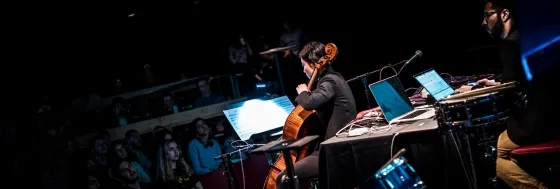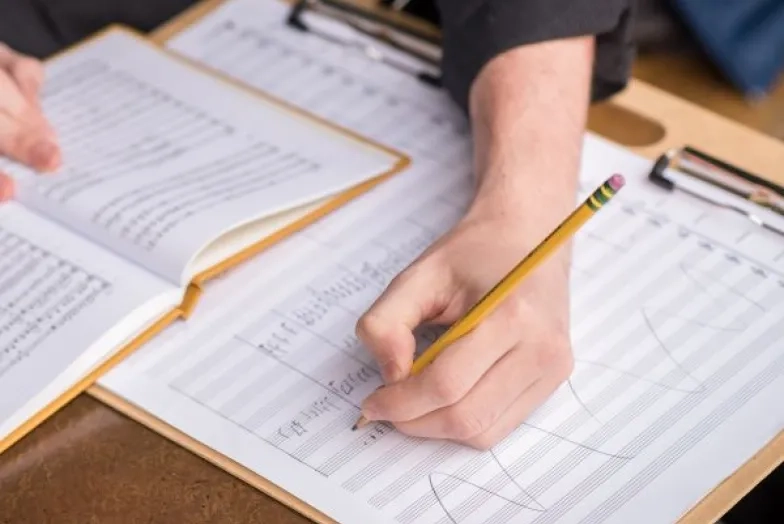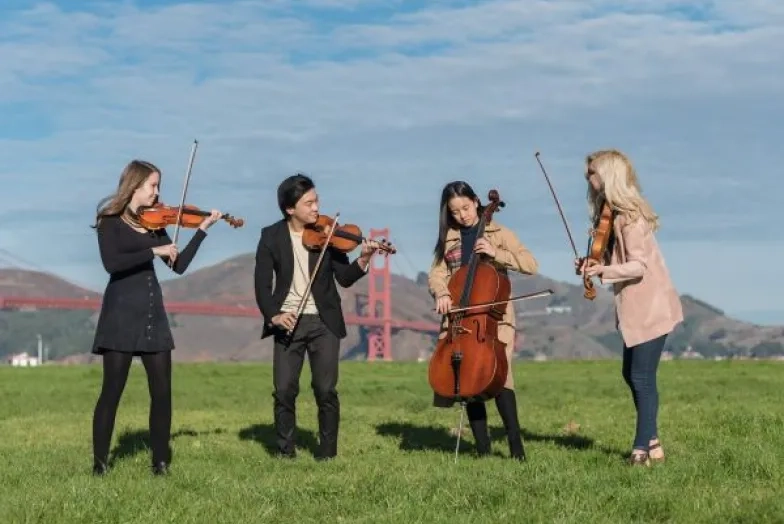TAC Master of Music Curriculum
Collegiate Apply / Request Information
Forging a new identity for the 21st-century composer." — The New York Times
Radically creative. Radically pragmatic.
The Master of Music in Technology and Applied Composition is the ultimate launch pad for composers to gain a competitive artistic portfolio of work, a network of like-minded professionals, and mastery of in-demand skills. The program is a project-based curriculum with the rigor of a traditional conservatory of music located in the technology capital of the world.
The young professionals in this program experience two years of coursework in production, scoring for media, sound design, computer programming, technical audio implementation, and recording engineering combined with courses in music history, theory, orchestration, analysis, and more. With access to a brand new technology-based facility in the heart of downtown San Francisco, TAC students are well-resourced to record, create, and collaborate with renowned faculty, professional session musicians, and leading professionals within the industry.



